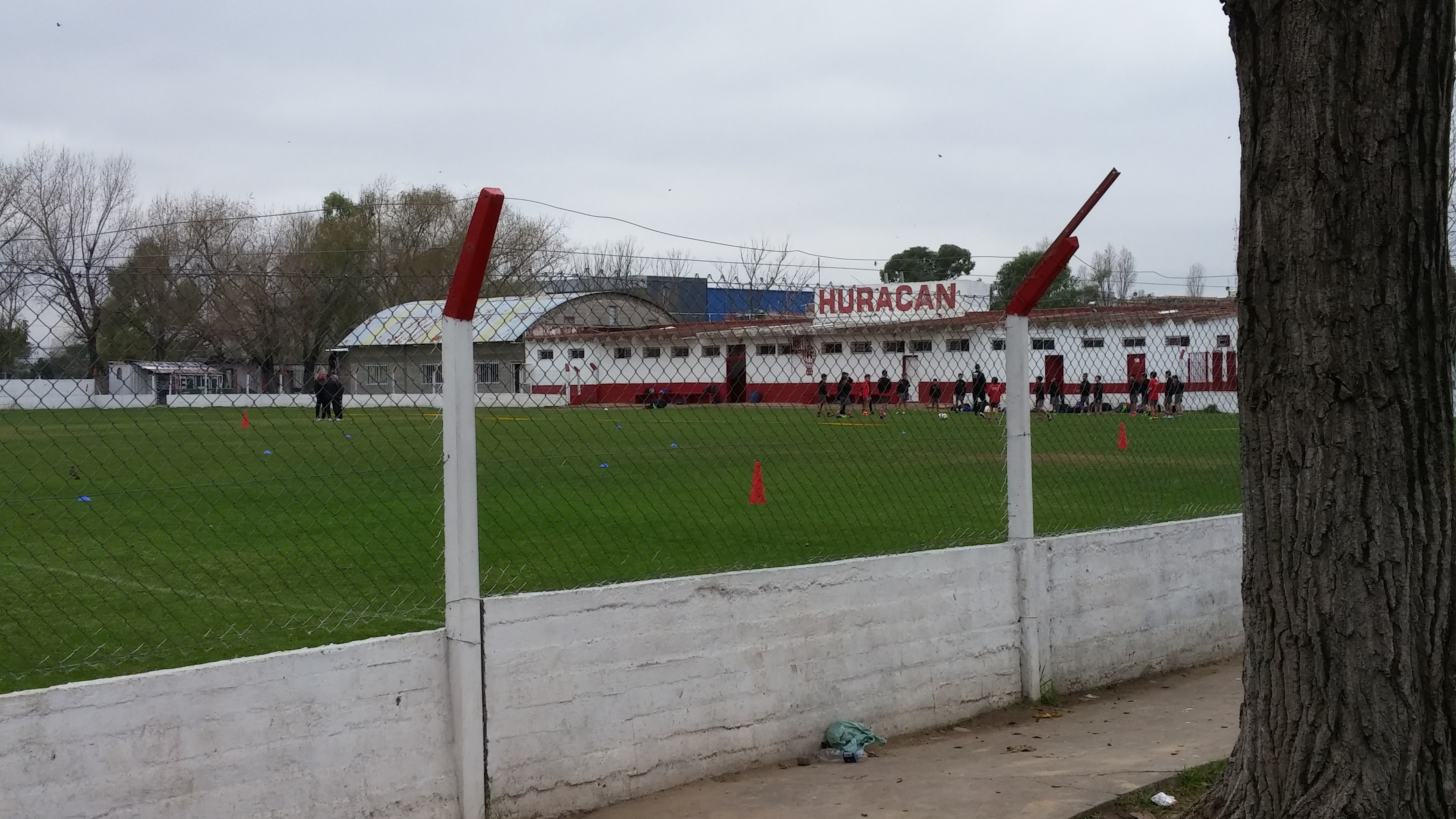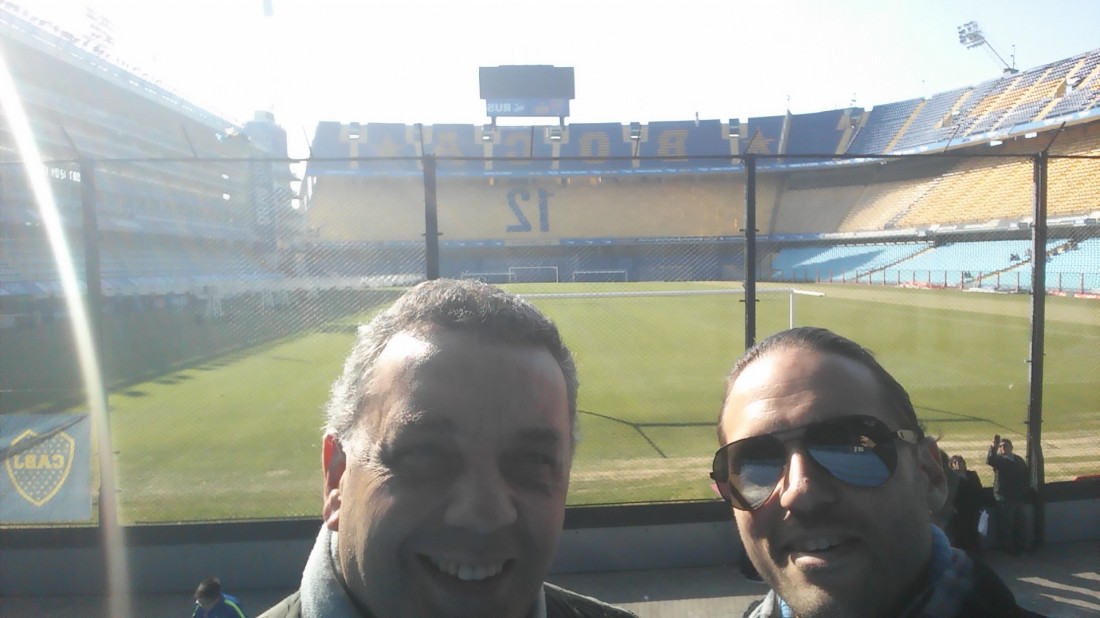In late June of 2017, I visited my friend, colleague and mentor, Rafael Carbajal, in Buenos Aires, Argentina, where he is in the final process of completing his Argentinian “A” License and validating his other “A” coaching licenses from Canada, the United States and UEFA.
During the trip I was fortunate to have been given the opportunity to observe youth academy training sessions by Huracan FC, a professional club in the Argentinian First Division and the club regarded as the best player developer in the country.
While watching an Under-13 (2005) training session, it was not hard for me to see why the club has garnered this reputation.
The players were skillful, intelligent, crafty, coordinated and fit. They were able to connect passes in small spaces with two or even one touch, in a manner in which few Canadian teams of any age category would be able to keep up with.
As I watched them train I could not help but think to myself that whatever type of training these boys were doing – including the amount of time they spent training each day and week, and the specific training mythologies used in their training sessions – it was clearly working.

When I spoke with Coach Carbajal and some of the other coaches and instructors from the “A” License course, I learned and interesting – albeit not surprising – fact about Huracan and other Argentinian professional youth academies: even at the younger Under-13 age categories, teams train 5 days per week.
What this means is that aspiring Argentinian soccer players, as young as 12 years of age, have a practice every day, Monday-to-Friday, plus a game on Saturday or Sunday, every week of the year.
Interestingly, the time commitment required of Argentinian professional youth academies ensures that Argentinian boys who want to become professional soccer players must commit to or “specialise” in soccer at a very young age. They really have no choice or option to participate in any other sports, as their training and game schedule simply does not allow time for any sport other than soccer.
In Canada, this type of early specialisation in soccer or other sports is discouraged. The Canadian Soccer Association has for the past 10 years followed the “Long Term Athlete Development” or “LTAD” model, one of the tenets of which is a recommendation that athletes to not exclusively play one sport (in this case, soccer) until the age of 16.
Proponents of LTAD typically argue that late specialisation leads to less over-use injuries, less burn-out or drop-out from sports, and better overall athletic development, as compared to early specialisation. The professional coaches and fitness coaches I spoke with in Argentina, however, all believed that these objectives could be achieved in combination with early specialisation in soccer.
Their rationale was that, provided youth coaches and fitness coaches are trained and educated in evidence-based best practices for working with young, growing and developing soccer players, these coaches should be able to put together a curriculum and training program that allows for early specialisation in soccer without experiencing some of the proposed negative effects.
The basic level youth coaching licences in Argentina, a minimum requirement for all coaches working with young players in professional Argentinian academies, comprises a 2-year, 1400-hour course with written and practical examinations. Principal among the scientific subjects included in the course, in which coaches must prove and demonstrate their competence, are:
- Physiology (to understand the loading placed on players during training and games, and allow for a well-rounded physical training program)
- Motor learning (to develop and implement training sessions that maximise players’ ability to learn to execute simple and complex soccer skills)
- Sport psychology (to discern how the physical and psychological demands of training and games are affecting players’ minds, and how to help them reach their full mental potential); and
- Periodisation of training (to allow for the development of a comprehensive annual training plan, with the right amount of intensity and volume of training throughout the year)
Of course, if the aforementioned potential negative effects can be avoided, young soccer players do stand to benefit greatly from some of the advantages of early specialisation in soccer – most importantly, better technical skill development and a better understanding of the tactical side of the game.
Whether or not you agree with LTAD and the late specialisation it recommends, there can be no disputing the fact that in Argentina, young soccer players are developing the required technical skills and tactical understanding of the game to perform and succeed at the highest level. Thus, it may be possible that the Argentinian model of early specialisation in soccer, combined with knowledgeable, educated and experienced youth soccer coaches and fitness coaches, warrants consideration in Canada as well.
Ultimately, the best way of assessing the effectiveness of any type of soccer training program – physical, technical, tactical or psychological – is to watch how the players actually play the game. In this case, the evidence in support of the effectiveness of the Argentinian model of youth development is overwhelming. It is possible that, with the right combination of enthusiastic and passionate players with well-educated coaches and fitness coaches, early specialisation in soccer may not be such a bad thing after all.
I’d love to hear your thoughts about this topic. Drop me a line here to get the conversation started.


Leave A Comment